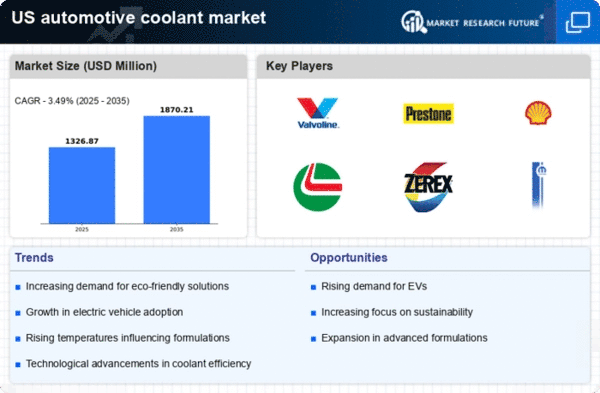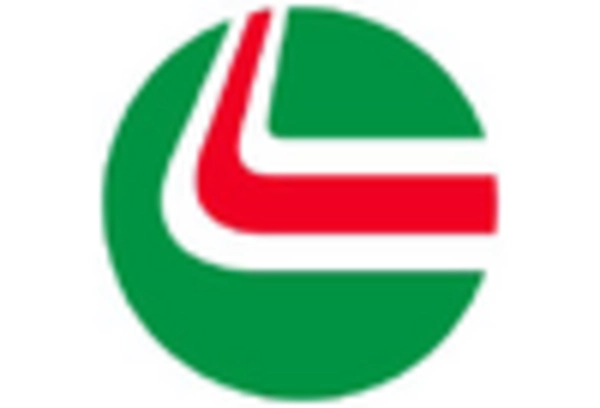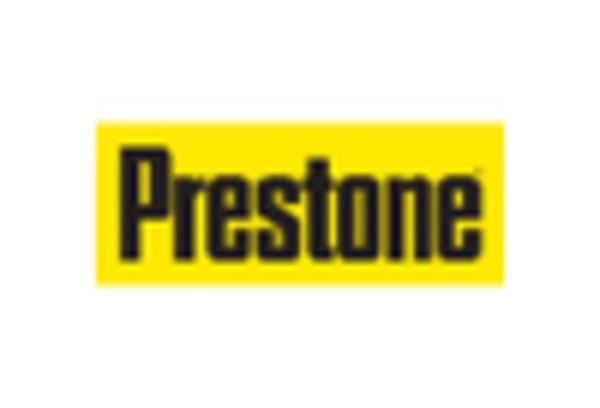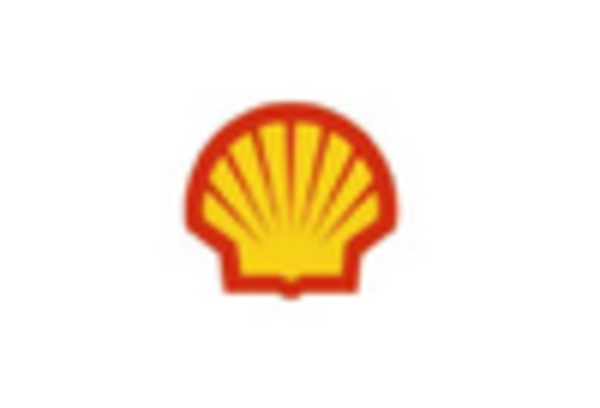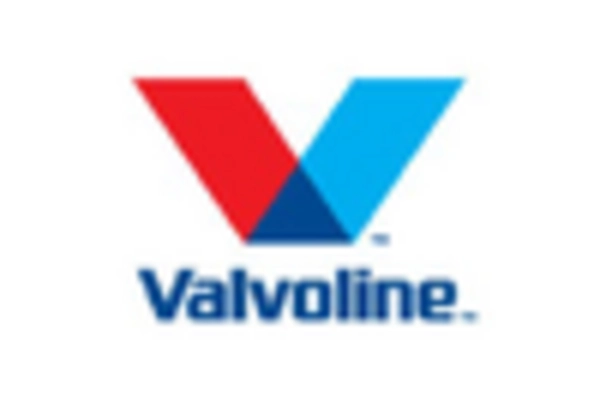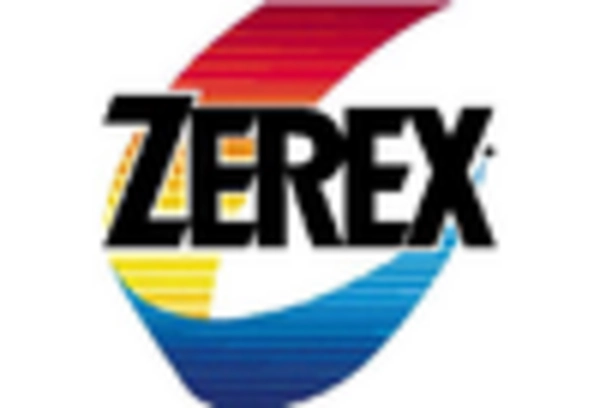The automotive coolant market exhibits a dynamic competitive landscape characterized by innovation, sustainability, and strategic partnerships. Key players such as Valvoline (US), Prestone (US), and Shell (GB) are actively shaping the market through their distinct operational focuses. Valvoline (US) emphasizes product innovation, particularly in developing eco-friendly coolants that align with growing environmental concerns. Prestone (US) leverages its strong brand recognition and extensive distribution network to maintain a competitive edge, while Shell (GB) focuses on integrating advanced technology into its coolant formulations, enhancing performance and efficiency. Collectively, these strategies contribute to a competitive environment that is increasingly driven by technological advancements and consumer preferences for sustainable products.In terms of business tactics, companies are localizing manufacturing and optimizing supply chains to enhance operational efficiency. The market structure appears moderately fragmented, with several players vying for market share. However, the influence of major companies is significant, as they set industry standards and drive innovation. This competitive structure allows for a diverse range of products, catering to various consumer needs while fostering healthy competition among established and emerging brands.
In October Valvoline (US) announced a partnership with a leading automotive manufacturer to develop a new line of high-performance coolants specifically designed for electric vehicles. This strategic move not only positions Valvoline (US) at the forefront of the growing EV market but also underscores its commitment to innovation and sustainability. By aligning its product offerings with the evolving automotive landscape, Valvoline (US) is likely to enhance its market presence and appeal to environmentally conscious consumers.
In September Prestone (US) launched a new marketing campaign aimed at promoting its advanced coolant technology, which claims to provide superior protection against engine overheating. This initiative reflects Prestone's (US) strategy to reinforce its brand image as a leader in coolant technology. By investing in marketing and consumer education, Prestone (US) seeks to differentiate itself in a crowded market, potentially increasing its market share and customer loyalty.
In August Shell (GB) expanded its product line by introducing a biodegradable coolant, responding to the increasing demand for sustainable automotive solutions. This launch not only aligns with global sustainability trends but also positions Shell (GB) as a pioneer in eco-friendly coolant formulations. The strategic importance of this move lies in its potential to attract environmentally conscious consumers and enhance Shell's (GB) reputation as a leader in sustainable practices within the automotive sector.
As of November current trends in the automotive coolant market are increasingly defined by digitalization, sustainability, and the integration of artificial intelligence. Strategic alliances among key players are shaping the competitive landscape, fostering innovation and enhancing product offerings. The shift from price-based competition to a focus on technological advancement and supply chain reliability is evident. Companies are likely to continue differentiating themselves through innovative solutions and sustainable practices, ensuring their relevance in an evolving market.


